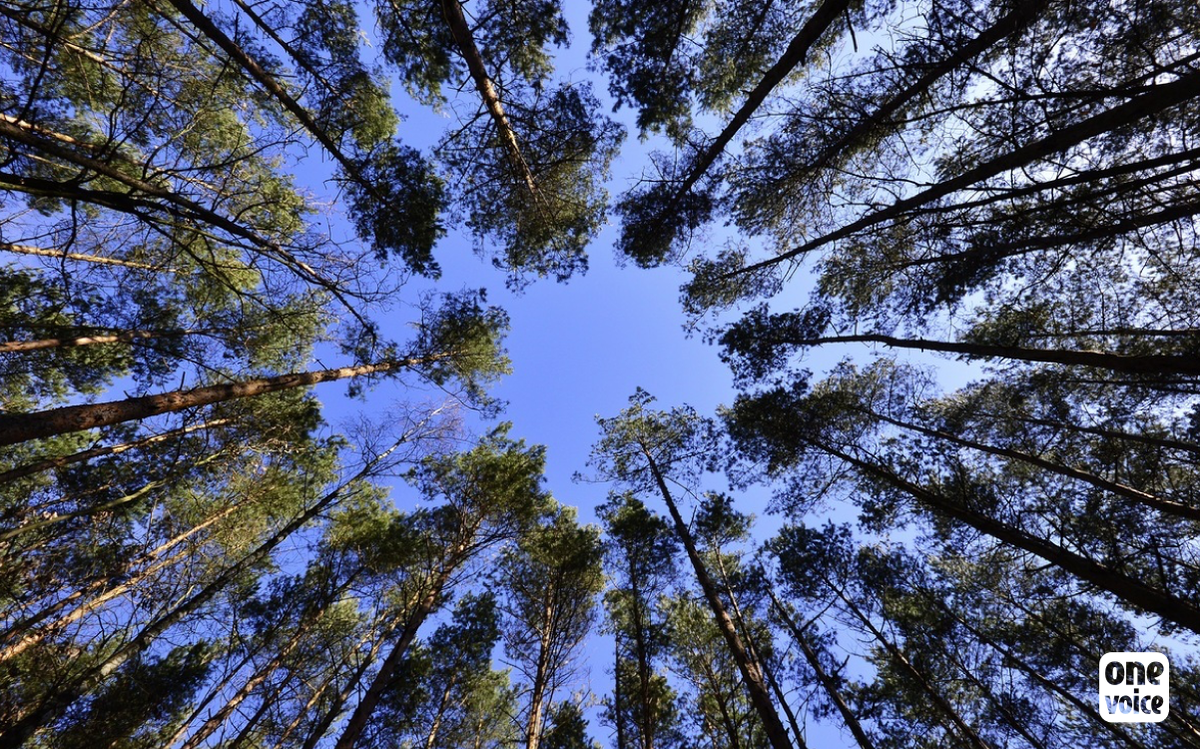

The name of the world is forest*
The destruction of the primary forests is causing a worsening change of the climate. With them die rare species and subtle cultures, human or non-human, of which we will never know anything about.
The saw cuts the bark of a gigantic dipterocarp. Up above, an orang-utan mother and her baby cling to the last branches of the canopy, as if to flee to the sky. But the tree is cut in all its width. Slowly, majestically, inexorably, its trunk, all eighty meters of it, wobbles, bends and collapses in a thunder of broken wood, torn vines, hoarse cries, and frightful flights of hornbills. In falling, the giant carries in death a thousand nests, a thousand lives, a thousand small dens hidden in the folds of its bark. He crushes a thousand others under his enormous mass. He himself is a living being, conscious of what surrounds him in the manner of plants. And while we pick up the little red monkey from the broken body of his mother, the reclining tree loses its sap like blood. It is soon dragged along the mud tracks, raked by trucks in the bosom of its world: the rainforest of Sumatra.
Everywhere, this scene is repeated. In the Congo Basin or the Amazon, in Thailand, Cambodia, Indonesia, Canada, everywhere, forests are disappearing under the steamroller of human madness. Monstrous dams are engulfing them, sprawling cities are devouring them little by little, and cattle farms are finishing them off. Giant trees are cut down for the precious wood industry. Fires are lit to make room for palm oil plantations. Coltan mines excavate the earth to the last roots in the heart of Congolese national parks. Their workers eat bushmeat and kill the gorillas.
No account is ever held of the inhabitants of this ocean of trees that are ravaged. Tropical forests are yet home to the world’s most marvellous biodiversity, tree frogs, unheard-of insects, unknown medicinal plants and subtle non-human cultures. The forest is also home to human peoples who have been exploiting its resources with respect for a millennium. In symbiosis with her, they venerate and protect her. But the magic of their shamans can do nothing against gold diggers armed to the teeth, bulldozers and soldiers who expel them from their ancestral lands and destroy their traditions.
Each year, more than 13 million hectares of forest are lost, the equivalent of the surface of England or forty football fields every minute. This biotope is essential for climate stability and soil conservation. Its destruction further increases the amount of CO2 in the atmosphere, and with it, climate change and flooding, droughts and landslides.
In the past, we lived with the forest. She surrounded our hamlets until the end of the Middle Ages. Huge expanses of oaks then covered the whole of France. The bears, the wolves, the lynx prospered in peace, regulating in harmony the nature around them. Today, everything has
been totally ravaged or almost. Fields, highways, cities, car parks stretching to infinity have long covered the high forests and woods, which occupy only a small area of the European continent. We have forgotten the majesty of trees; we have lost the secret of dialogue with them. And today already we are starting to pay dearly. Forests are a treasure of evolution: help us to protect them!